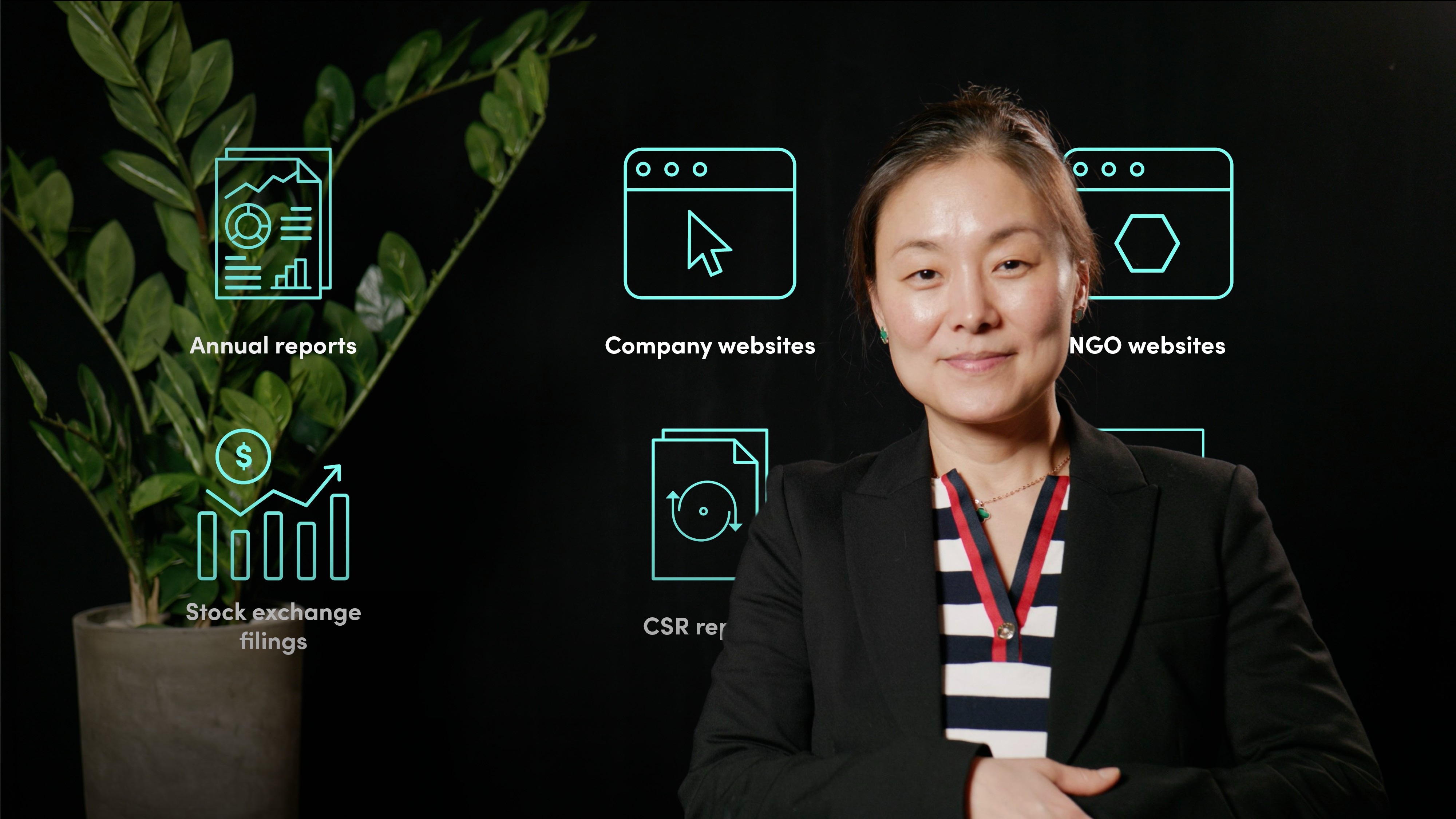
Sustainability Jargon Buster II (Danske)

Simone Koo Ishikawa
20 years: Investment Banking
In this video, Simone looks at some of the reporting initiatives coming up and spends some time discussing the work of data aggregators and ESG rating providers, before seeing how ESG consultancies can help make this all a reality.
In this video, Simone looks at some of the reporting initiatives coming up and spends some time discussing the work of data aggregators and ESG rating providers, before seeing how ESG consultancies can help make this all a reality.
Subscribe to watch
Access this and all of the content on our platform by signing up for a 7-day free trial.

Sustainability Jargon Buster II (Danske)
15 mins
Key learning objectives:
Understand how global ESG initiatives and taxonomies is essential for effectively leading a business
Understand how global disclosure reporting initiatives is essential for effectively leading a business
Understand how data aggregators and ESG ratings is essential for effectively leading a business
Overview:
Sustainability leadership requires a holistic approach, encompassing a comprehensive understanding of ESG terminology, global initiatives, and taxonomies. Effective disclosure reporting, data aggregation, and ESG ratings are essential for evaluating and measuring progress towards sustainability goals.
Subscribe to watch
Access this and all of the content on our platform by signing up for a 7-day free trial.
- EU Non-Financial Reporting Directive (NFRD): Requires large EU companies to disclose non-financial information related to environmental impact, social and employee matters, human rights, and anti-corruption and bribery.
- Corporate Sustainability Reporting Directive (CSRD): An amendment to the NFRD, it increases reporting requirements for large companies, capturing a higher percentage of EU limited companies by turnover. Companies will have to apply the new rules for the first time in the financial year 2024.
- Sustainable Finance Disclosure Regulation (SFDR): Introduced in the EU in 2021, it demands transparency and disclosure for funds integrating ESG factors into investment decisions. Funds are classified into Article 6 (brown), Article 8 (light green), and Article 9 (dark green).
ESG data providers evaluate companies' ESG performance by collecting and analysing relevant data across environmental, social, and governance factors. They use standardised metrics and methodologies to assess various aspects of a company's sustainability practices. For example,
- MSCI analyses 35 key ESG issues across 10 themes,
- Sustainalytics measures the extent to which a company's economic value is at risk due to unmanaged ESG risks
- Bloomberg ESG Data covers a wide range of sustainability topics organised into 2,000+ fields
- Refinitiv cover over 85% of the financial industry by market cap across more than 630 different ESG metrics
These providers combine data from different sources, such as regulatory filings, company reports, and proprietary databases, to generate ESG ratings and scores.
Subscribe to watch
Access this and all of the content on our platform by signing up for a 7-day free trial.

Simone Koo Ishikawa
There are no available Videos from "Simone Koo Ishikawa"





























